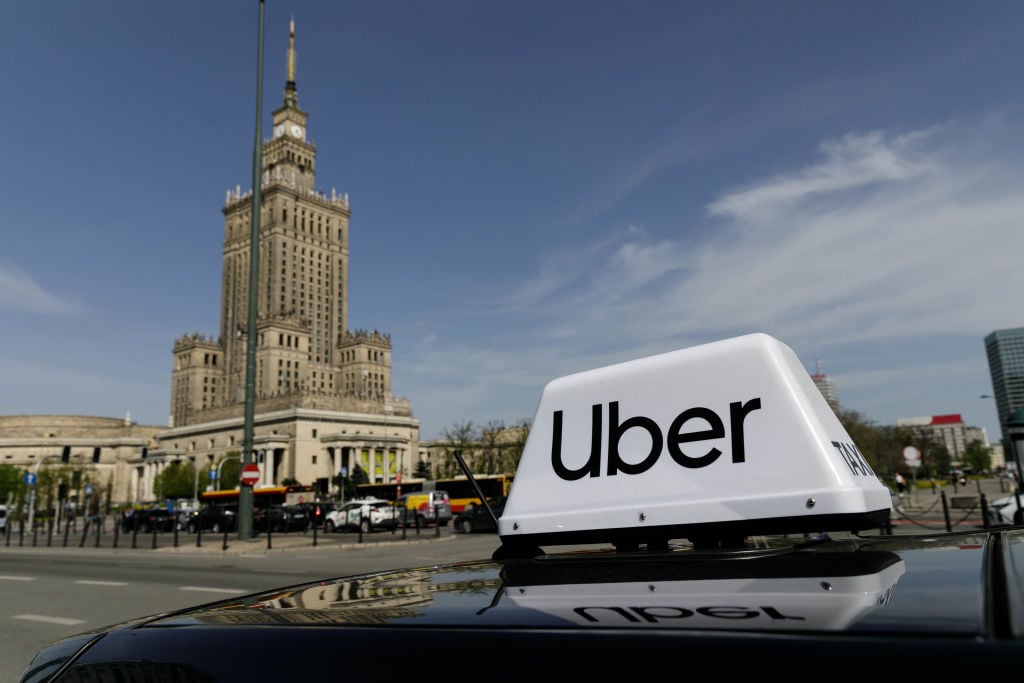After an abysmal year for investors in 2022, when rising interest rates completely shut down interest in growth tech stocks, this year has brought some renewed optimism. The Nasdaq Composite Index is up 32% (as of Sept. 12). And Uber (UBER +2.43%), which has typically been considered a more speculative company to own, has seen its shares skyrocket 94% this year.
The transportation-as-a-service business is experiencing strong momentum right now following impressive financial results. But the stock is trading at roughly the same levels it was at when it went public in May 2019. Does this present investors with a good opportunity to buy Uber shares right now? Let's take a closer look at the popular ride-hailing and food-delivery enterprise.
Hitting a financial milestone
In the most recent quarter (the second quarter of 2023, which ended June 30), Uber's revenue of $9.2 billion was 14% higher than in the year-ago period. Unfortunately, this figure missed Wall Street estimates by $100 million. Additionally, the rate of growth continues a trend of decelerating top-line gains that Uber has posted during the past several quarters.
But it's not all bad news. The business was finally able to register its first-ever operating profit, as this metric came in at $326 million for the quarter. And perhaps even more impressive, Uber produced $1.1 billion of free cash flow (FCF), a new record. The bulls are raging as a result of these positive financial metrics, as the company appears to have reached a profit milestone that many thought wouldn't happen.
To its credit, the management team, led by CEO Dara Khosrowshahi, has really focused on finding ways to cut costs. Uber spent $8.9 billion in the most recent quarter on all of its costs and expenses, virtually identical to Q2 2022. Yet the sales base is much higher right now. That's an early sign that the business is scaling up in an efficient manner.

NYSE: UBER
Key Data Points
Essential to daily life
While the FCF figure can definitely be something that excites shareholders, in my opinion, what makes Uber an intriguing investment candidate is just how essential it has become to the daily lives of millions of people. It's hard to imagine what life was like before Uber existed, as its services are so ingrained in our society today. This superior customer value proposition gives me confidence that Uber isn't going away anytime soon and that maybe its importance will only expand over time.
In Q2, Uber had 137 million monthly active platform consumers (MAPCs), up 12% year over year, who spent $33.6 billion in gross booking value on the app and took 2.3 billion trips. Plus, there were 6 million drivers and couriers who worked for the app in the three-month period. That goes to show you just how big this platform really is.
Uber also benefits from having an economic moat, which helps it fend off rivals like Lyft. As more riders join the platform, it becomes increasingly valuable to drivers. The opposite is also true. Consequently, an expanding network results in a better matching of supply and demand, making Uber better as it gets bigger.
Furthermore, having access to so much data, like what areas in a city are popular, what times of the day people need the most rides, and what types of cuisine consumers are craving, can help Uber improve its services over time. The business can offer targeted promotions and discounts to spur demand where it sees fit, leading to higher activity on the platform.
What about the valuation?
I noted above that Uber's current stock price is about right where it went public. But since that IPO, the financials have only improved, and so the valuation has become more attractive. As of this writing, shares trade at a price-to-sales ratio of 2.8, which is below the historical average of 4.5. Given that Uber has turned the corner financially, coupled with its still expanding economic moat, investors might want to consider buying the stock right now.





